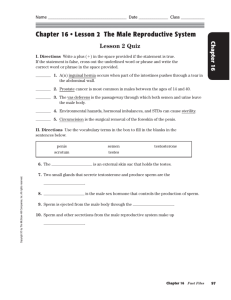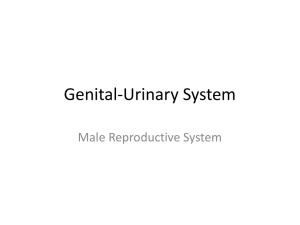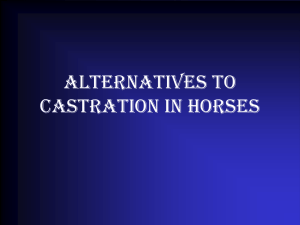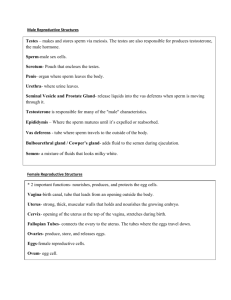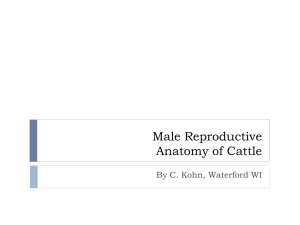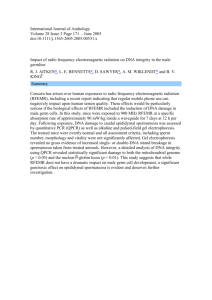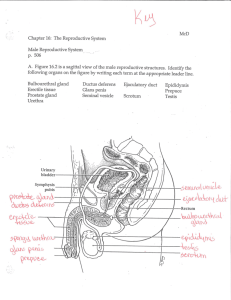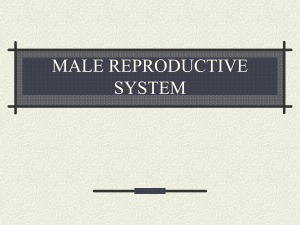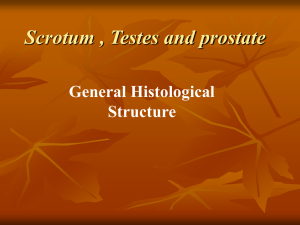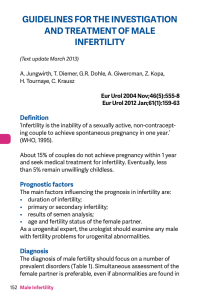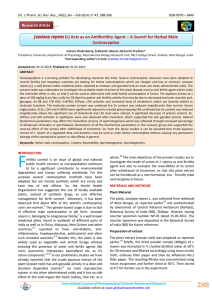File
advertisement
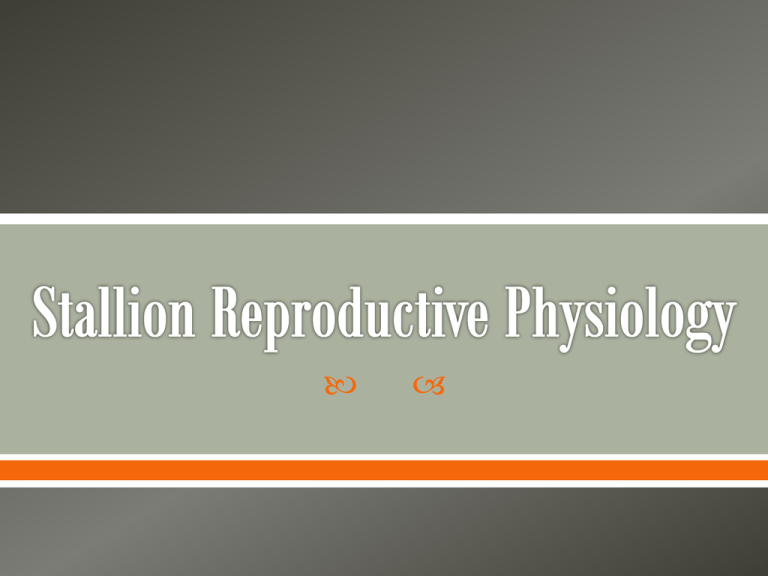
2 testes o Attached epididymus 2 ducts Urethra Penis Accessory Sex glands o Bulbourethral o Prostate o Vesicular Can be considered “master organ” o Site for production of spermatozoa (spermatogenesis) o Production of Testosterone As testicular size increases o Ability to produce spermatozoa increases Size also increase until age 12-13 Function of the testes starts with the hypothalamus Release of GnRH from hypothalamus to the pituitary gland o Stimulates production of FSH, and LH • FSH effects sertoli cells • • • • Sertoli Cells located in the testes epithelium Support spermatozoa development Secrete protein which regulate FSH Also proteins that bind testosterone • LH effects leydig cells • Located between seminiferous tubules • Responsible for testosterone production • Also secrete estrogen Concentrations control release of GnRH through a negative feedback system o Testosterone , system will slow down testosterone due to inhibition of the hypothalamus and pituitary gland o Testosterone , there is no inhibition and system testosterone Levels reduced when given anabolic steroids o Stallion displays normal behavior, but testicular size and sperm production are impaired When daylight periods are short o Pineal Gland (located in the brain) releases melatonin • Thought to inhibit hypothalamus from release GnRH • Therefore inhibits LH and testosterone Winter months male reproduction is suppressed o Testicular size and sperm count is reduced o Low sex drive (libido) Can be placed under lights to increase testicular activity o Normally exposed to 16 hours of daylight beginning in December o Testicular size and sperm production will approach normal in approx 60 days Spermatogenesis occurs in the seminiferous epithelium o Maintains population of uncommitted germ cells which future spermatozoa can be produced o Results in the formation of germ cells (spermatogonia) which give rise to spermatozoa Entire process divided into 3 stages o Spermatocytogenesis o Meiosis o Spermiogenesis o Each phase requires 18-19 days o Entire process requires 57 days Once spermatozoa are released o Travels through ducts to the epididymus • Lightly attached to the testes Epididymus divided into 3 segments o Head (caput) o Body (corpus) o Tail (cauda) Within epididymus o Sperm undergo maturation • Acquire ability to swim and fertilize an egg o Migration take approx 8 days o Stored in the tail of the epididymis until ejaculation Total length 65 days Daily Sperm Output (DSP) o # of spermatozoa produced within 24 hour o Vary among stallions and testicular size o Determined by collecting stallion for 7 days Testes are suspended with the scrotum by the spermatic cord and associated with the cremaster muscle Scrotum is a pendulous sac that maintains temperature for sperm production Tunica dartos and cremaster contract during cool weather and drop away to lower temperature Elevated temperature will result in lower spermatozoa A decrease in fertility may not be seen for about 2 months Classified as a musculocavernous type o Consists of: • Root • Attached the penis to the skeleton • Main body (shaft) • Glans penis • Free end of the penis Spermatozoa released from the tail of the epididymus o Moved via muscular contraction through the ductus deferens in the pelvic urethra o Mixed with secretions of the accessory glands during ejaculation • Referred to as semen Seminal fluid o Fluid portion of semen o Consists of testicular, epididymal, and accessory sex gland secretions Released in fractions o First: pre-sperm • Cleans urethra o Second: sperm-rich • 45% of ejaculate volume • 75% spermatazoa o Third: sperm-poor • Contain gel, filtered out during sperm collection for AI http://peer.tamu.edu/video/videovettech/equine_reproduc tion.m4v
